The Hybrid Working Model
Change is on the horizon. As we begin to slowly come out of an incredibly challenging fourteen months, some significant changes are occurring in the way in which we work, not only in Ireland but globally. I’m sure we could all do without reliving the past with businesses being forced to either shut or drastically change all aspects of the day to day running of their processes, workforce, IT and more.
The doors closed on physical businesses and employees across the country were faced with adjusting to remote working, perhaps for the first time. It was unfathomable to most of us. Surprisingly, many started to embrace this new way of working and living. Not only were employees’ minds changed about working from home but employers started to see the benefits of having a fully remote team.
Referring to the Remote Working Strategy initiative documents released by the Department of Trade, Enterprise and Employment, 94% of people asked in a survey voiced that they would like options to work from home after the pandemic. The strategy’s main action is to mandate that home and remote work should be the norm for 20% of public sector employment.
Three Pillars for The National Remote Working Strategy
One main objective of the initiative is to ensure that remote working is a permanent feature in the Irish Workplace.
Pillar One: Create a Conducive Environment
Pillar Two: Develop and Leverage Remote Working Infrastructure
Pillar Three: Build a Remote Work Policy and Guidance Framework
Find out more information about the National Remote Working Strategy.
Companies Are Starting to Embrace Change
It seems as though we are on our way to this new hybrid working model with some companies such as BOI already publicly announcing their plans.
BOI is offering their staff much more flexibility in how and where they work.
“This working model will allow colleagues to work from a combination of home and central office locations, and will also offer colleagues access to a network of 11 remote working hubs by the end of 2021.” – BOI website
Bank of Ireland goes on to say that this new hybrid working model will allow workers to have not only greater flexibility but also reduced time spent commuting and a more positive work-life balance.
Benefits of Hybrid Working
Work-Life Balance
A common grievance among employees is not having a healthy work-life balance. Long commutes every day can add on several hours to the workday, leaving little time to spend on personal activities throughout the workweek.
Flexibility
Providing employees with options as to how they work will give them more flexibility. It will allow employees to make personal plans and structure their workweek in a way that suits themselves and/or their family.
Productivity
Having a more flexible and less rigid workweek can improve employee morale and therefore boost productivity.
Cost-Effective
A very appealing benefit of the hybrid working model is that it can be a cost-effective option for both employees and employers. Employees will have reduced commuting costs as well as other costs such as lunches. Employers will have fewer overheads with fewer people in the office.
Wider Talent Reach
With no restrictions on geographical location, employers have a wider reach when it comes to recruiting new staff.
Challenges of The Hybrid Working Model
Although there are many benefits of this new way of working, it is understandable that there are some concerns. Managing both remote and in-house staff may take some careful planning and consideration especially regarding collaboration and IT requirements to ensure that there is cohesive and streamlined communication among the company as a whole.
It will be up to employers to guarantee that the best processes possible are put in place to support employee welfare, motivation and productivity.
Conclusion
Many companies have started to embrace the new hybrid working model and many more will follow. Time will tell the full advantages and challenges they will face. However, it could overall have a highly positive impact on the Irish workforce.
It is unclear as to whether such an initiative or model would materialise had the pandemic not forced businesses globally to reevaluate everything. Perhaps it will show itself to be one of the few silver linings.
Are you an employer looking for resources to support your staff? Here are some articles you may find useful:
8 Silver Linings of Working From Home
Supporting Field-Based Workers



